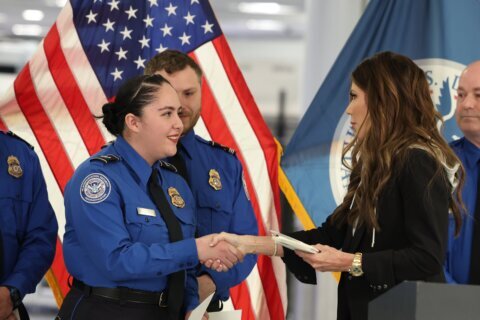WASHINGTON — No, they didn’t get the sweep they were looking for.
That would have been a storybook ending to an enormous series for the psychology of the Washington Nationals, who, although well poised to make the postseason, had yet to prove capable of beating their fiercest division rivals, the Atlanta Braves.
It would have been a huge monkey off the back of Stephen Strasburg, who pitched the finale, and who has not beaten the Braves in more than two years. But quietly, the Nationals made progress this week.
The mental block has been in place ever since the first matchup of the 2013 season. Leading 4-2 with the bases loaded and two outs in the top of the ninth, Ryan Zimmerman airmailed a throw from his surgically repaired shoulder allowing a pair of runs to score, sending the game to extras, where Washington would eventually lose, 6-4 in 10 innings.
But one could argue it’s actually been there since July 20, 2012 when, after taking a 9-0 lead through five frames behind Strasburg, the Nats allowed 10 runs over the next four frames, eventually losing, 11-10 in 11 innings. Washington dropped five of the final nine to Atlanta that year, then won only six times in 19 meetings in 2013, missing the playoffs after many picked the club to win the World Series.
Turner Field has been a house of horrors and flukes and injuries and ejections. The Nats have squandered 14 of their last 19 in Atlanta including four walk-offs, three in extra innings.
After dropping seven of their first eight contests with Atlanta this season, the Nationals were an embarrassing 11-25 against the Braves since that meltdown two summers ago, coming into this week. But entering their final home showdown this year, the Nats held a commanding seven-game lead, fiercely in the driver’s seat in the NL East.
Offseason acquisition Doug Fister led the way in the first game, twirling seven scoreless innings. Anthony Rendon, who has quietly been Washington’s best player all year long, singled in the bottom of the first and scored the game’s only run into the bottom of the seventh, when the type of situation that has always seemed to go against Washington in this matchup finally broke its way.
With the bases loaded and one out, Rendon chopped a ball back just to the right of the pitcher’s mound. Had it gotten to the second baseman cleanly, it may well have been an inning-ending double play. But a deflection off pitcher David Hale’s glove slowed the ball just a hair, enough to alter Tommy La Stella’s route to the ball slightly, to delay his feed to Andrelton Simmons covering second, allowing Rendon to beat out the back end of the double play and a key insurance run to score.
Maybe Rendon would have been safe all along. In this matchup, one has reason to doubt.
That run would prove crucial, as Tyler Clippard would give it back in the top of the very next inning. Then Drew Storen, returned to the closer role from which he was unceremoniously dropped following his Game 5 meltdown in 2012, fanned a pair in a 1-2-3 ninth to cap a 2-1 win.
Storen
␎ 
Drew Storen’s return to dominance — and the closer role — was instrumental to Washington’s series win. (AP Photo/Alex Brandon)
On Tuesday night, the Nats sent nine men to the plate in the first inning against Ervin Santana, scoring four times to bury the Braves before they could even get started. But the Braves cut the lead to 6-4 with a pair of runs in the seventh, leading to another high leverage situation for the bullpen. This time, the three-headed monster of Aaron Barrett, Ross Detwiler and Craig Stammen navigated around a leadoff double, the latter fanning noted Nats killer Justin Upton to end the threat. Storen came on again in the ninth, and again delivered a 1-2-3 frame to seal the win.
The Nationals had turned the tide, winning five of the last seven entering Wednesday. What always seemed to be an uphill battle has become the opposite, with Washington pitching holding the Braves to one run or less in four of those victories. And so, even though they didn’t get the coveted sweep, didn’t win with Strasburg on the mound and a chance to drive the first dagger into Atlanta’s Wild Card hopes, they quietly struck a small victory in their own quest for something greater than the fate that befell them in 2012.
After all, that’s what the postseason is all about — winning series.
It’s been evident for quite some time that the Braves are not the Nationals’ biggest problem this season. That may well be the Nationals themselves, and their struggles against teams who have had their number in the past. They cleared one hurdle in Los Angeles last week and another against Atlanta these past few days.
It’s too bad they won’t face St. Louis again, at least not until October.
Follow @WTOP and @WTOPSports on Twitter and WTOP on Facebook.







